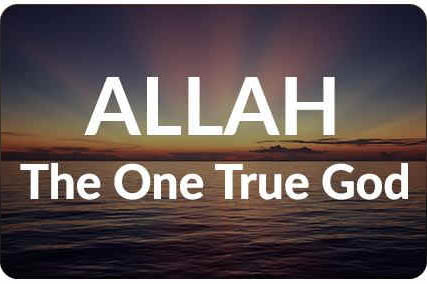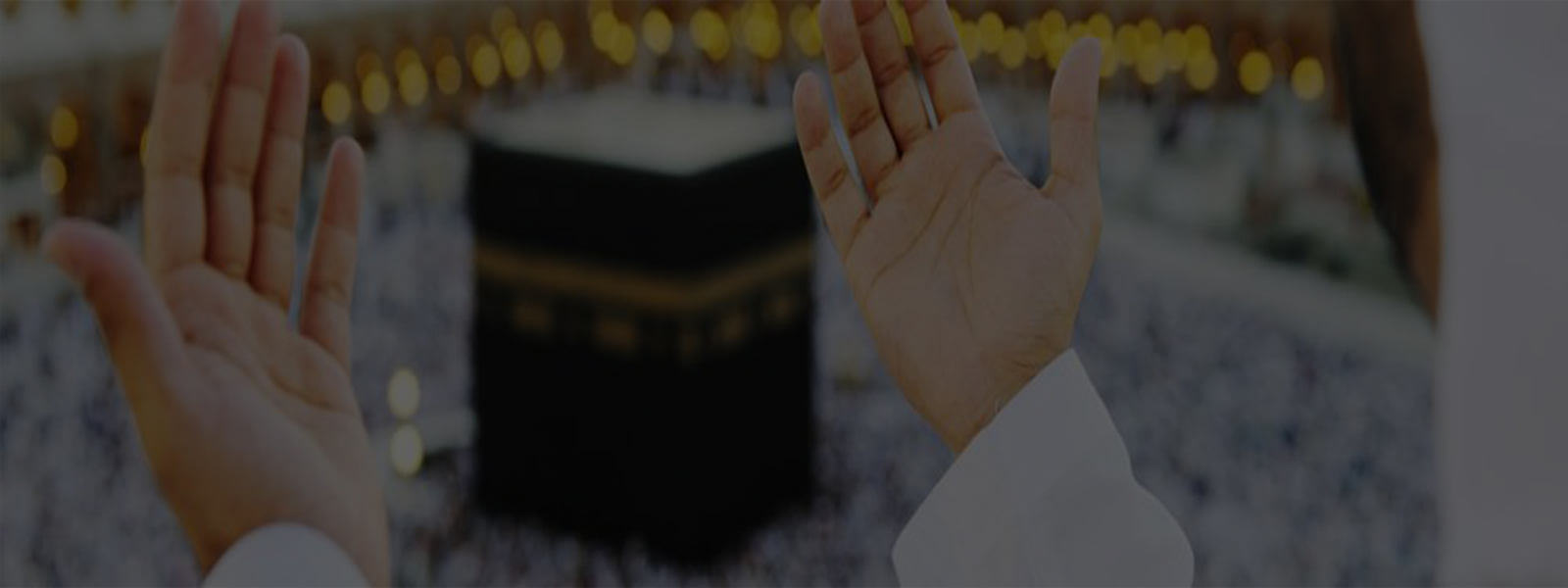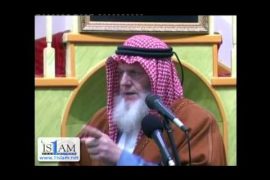Freedom of conscience is laid down by the Qur’an itself:
There is no compulsion in religion (2:256)
The life and property of all citizens in an Islamic state are considered sacred whether a person is Muslim or not. Racism is incomprehensible to Muslims, for the Qur’an speaks of human equality in the following terms:
O mankind, indeed We have created you from male and female and made you peoples and tribes that you may know one another. Indeed, the most noble of you in the sight of Allah is the most righteous of you. Indeed, Allah is Knowing and Acquainted. (49:13)
THERE ARE SIX ARTICLES OF FAITH
These are things that every Muslim must believe. A person who doubts any of these things cannot be considered a Muslim. These articles of faith are:
BELIEF IN GOD
Islam emphasizes that God is One, The Creator of all that exists, and He is unique in every way. only God has the right to be worshipped.
BELIEF IN HIS ANGELS
The angels are creation of God. God created them from light. They are powerful and always do precisely as they are commanded by God.
BELIEF IN HIS BOOKS
Muslims believe in all of the original scriptures revealed by God to His different Messengers (Peace be upon them). A Muslim must believe in every scripture mentioned by God in the Qur’an. God revealed them, and they are the actual word of God. The scriptures that God mentions in the Qur’an are as follows:
- The original Scrolls as revealed to Abraham
- The original Torah as revealed to Moses
- The original Psalms as revealed to David
- The original Injeel (Gospel of Jesus) as revealed to Jesus
- The Qur’an as revealed to Muhammad (which is still available in its original form) (Peace be upon them all)
According to the Qur’an, people have distorted the previous scriptures for their own worldly gain. What remains of them is a mixture of truth and contamination introduced by man ie truth from God and contamination from man. Although Muslims believe in all the previous books, they only live and are guided by the Qur’an and the authentic traditions of the Prophet Muhammad (Peace be upon him).
BELIEF IN HIS PROPHETS AND MESSENGERS
The Prophets and Messengers were individuals who received Revelation from God and conveyed it to mankind. They were sent to humanity to return people to monotheism and to guide them to the path of salvation. None of the Prophets and Messengers share in any part of God’s Divinity. They were merely human beings. It is forbidden for a Muslim to worship them or to use them as a conduit to God. A Muslim should never invoke them, make supplications to them, or seek God’s Mercy and Forgiveness through them. All such acts are polytheistic, and anyone who engages in them is outside the fold of Islam as taught by every single Messenger.
BELIEF IN THE DAY OF JUDGMENT
All Muslims must believe, without doubt, in the Day of Judgment and the physical resurrection when the body will be re-created and the soul will be reunited with the body by God’s unlimited and amazing power. Just as God created us the first time, He is surely able to bring us forth from death to stand in perfect judgment before Him. From the Day of Judgment, death will be no longer; our existence will be forever. The Day of Judgment is when each and every individual will stand before the Creator and be questioned about his or her deeds. On that day, we will each see in detail the results of even the smallest good and the smallest evil we have set forth in this life. On this day, lying and deception will be impossible. The ultimate reward is Paradise and the penalty is Hell. Heaven and Hell are literal places of existence, not a figment of imagination.
BELIEF IN DIVINE DECREE
God, in His Timelessness, knows everything that goes on in His creation and when it occurs. From the perspective of temporal beings like us, this means that God knows everything that happened in the past through His All-Encompassing Knowledge, everything that is now taking place by His Supreme Power, and everything that will happen in the future by His Infinite Wisdom. God’s Divine Knowledge is Perfect. He knows all, and all that He knows will come to pass.
God Has Absolute Sovereignty over His creation. Everything that exists within His creation and every event that occurs is a direct result of His Creating it. Nothing happens in creation except by His Power, His Will, and His Knowledge.
Although much simpler than the dietary law followed by Jews and the early Christians, the code which Muslims observe forbids the consumption of pig meat or any kind of intoxicating drink. The Prophet taught that ‘your body has rights over you’, and the consumption of wholesome food and the leading of a healthy lifestyle are seen as religious obligations.
Like Christianity, Islam permits fighting in self-defense, in defense of religion, or on the part of those who have been expelled forcibly from their homes. It lays down strict rules of combat which include prohibitions against harming civilians and against destroying crops, trees and livestock. As Muslims see it, injustice would be triumphant in the world if good men were not prepared to risk their lives in a righteous cause.
The Qur’an says:
Fight in the cause of God against those who fight you, but do not transgress limits. God does not love transgressors (Qur’an 2:190)
If they seek peace, then seek you peace. And trust in God for He is the One that heareth and knoweth all things (Qur’an 8:61)
War, therefore, is the last resort, and is subject to the rigorous conditions laid down by the sacred law. The term Jihad literally means ‘struggle’, and Muslims believe that there are two kinds of Jihad. The other ‘Jihad’ is the inner struggle which everyone wages against egotistic desires, for the sake of attaining inner peace.
Like Jews and Christians, Muslims believe that the present life is only a trial preparation for the next realm of existence. Basic articles of faith include: the Day of Judgement, resurrection, Heaven and Hell. When a Muslim dies, he or she is washed, usually by a family member, wrapped in a clean white cloth, and buried with a simple prayer preferably the same day. Muslims consider this one of the final services they can do for their relatives, and an opportunity to remember their own brief existence here on earth. The Prophet taught that three things can continue to help a person even after death; charity which he had given, knowledge which he had taught and prayers on their behalf by a righteous child.


































